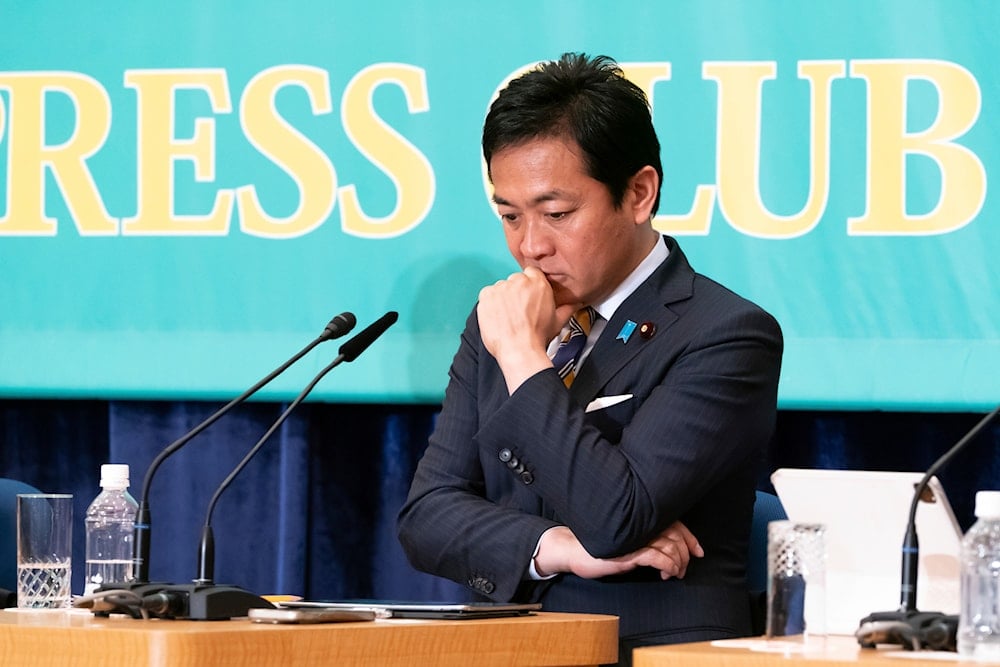Japan's opposition pushes for power shift in Japan
Japan’s opposition parties move to block Sanae Takaichi’s bid for prime minister after the ruling coalition collapses, opening the door for a rare power shift.
-

Democratic Party for the People Representative Yuichiro Tamaki takes part in a debate with leaders of other political parties at the Japan National Press Club in Tokyo, Japan, on July 2, 2025. (Tomohiro Ohsumi/Pool Photo via AP)
Japan’s opposition parties are moving swiftly to seize a rare political opening following the collapse of the decades-long ruling coalition between the Liberal Democratic Party (LDP) and Komeito. The Constitutional Democratic Party of Japan (CDP) is now leading efforts to unify opposition forces behind a single candidate to prevent newly elected LDP leader Sanae Takaichi from becoming the next prime minister.
“This is a once-in-a-decade chance for a change of government,” said CDP head Yoshihiko Noda, in remarks quoted by Nikkei on Friday.
Speaking on an upcoming Nikkei podcast, Noda revealed plans to rally opposition groups around a consensus candidate. One possible figure is Yuichiro Tamaki, head of the Democratic Party for the People (DPP), who has expressed willingness to stand. However, longstanding policy rifts between the CDP and DPP may still pose obstacles to full cooperation.
The push by the opposition comes as Komeito, the LDP’s junior partner for 26 years, announced its withdrawal from the coalition on Friday, citing ethical concerns. The break severely weakens the LDP’s grip on parliament and casts doubt on Takaichi’s ability to secure enough votes to be confirmed as prime minister.
Takaichi was elected LDP president last week, but still requires a parliamentary majority to assume office. The LDP currently holds 196 seats in the Lower House, well below the 233-seat threshold for a majority. Even with Komeito’s 24 seats, the ruling party cannot command a majority in either chamber.
Political scandal fuels discontent
Komeito party leader Tetsuo Saito said the party's exit was triggered by the LDP’s failure to implement tighter controls on political fundraising, following a scandal involving illicit payments tied to ticket sales at party events. The appointment of Koichi Hagiuda, implicated in the scandal, to a top LDP post further fueled discontent.
“Appointing someone involved in a political scandal to a senior position was a turning point,” said Hidehiro Yamamoto, a professor of politics at the University of Tsukuba. “For Komeito, it is difficult to explain this to supporters and volunteers engaged in election campaigning.”
Amid growing public disillusionment with the ruling party, support is shifting toward smaller parties, including the anti-immigration Sanseito. Analysts suggest that up to 20% of LDP lawmakers could lose their seats without Komeito’s electoral backing.
The LDP’s weakened position has created a rare opportunity for Japan’s opposition to mount a serious challenge to the ruling establishment, which has governed the country almost without interruption for the past 25 years.

 3 Min Read
3 Min Read










